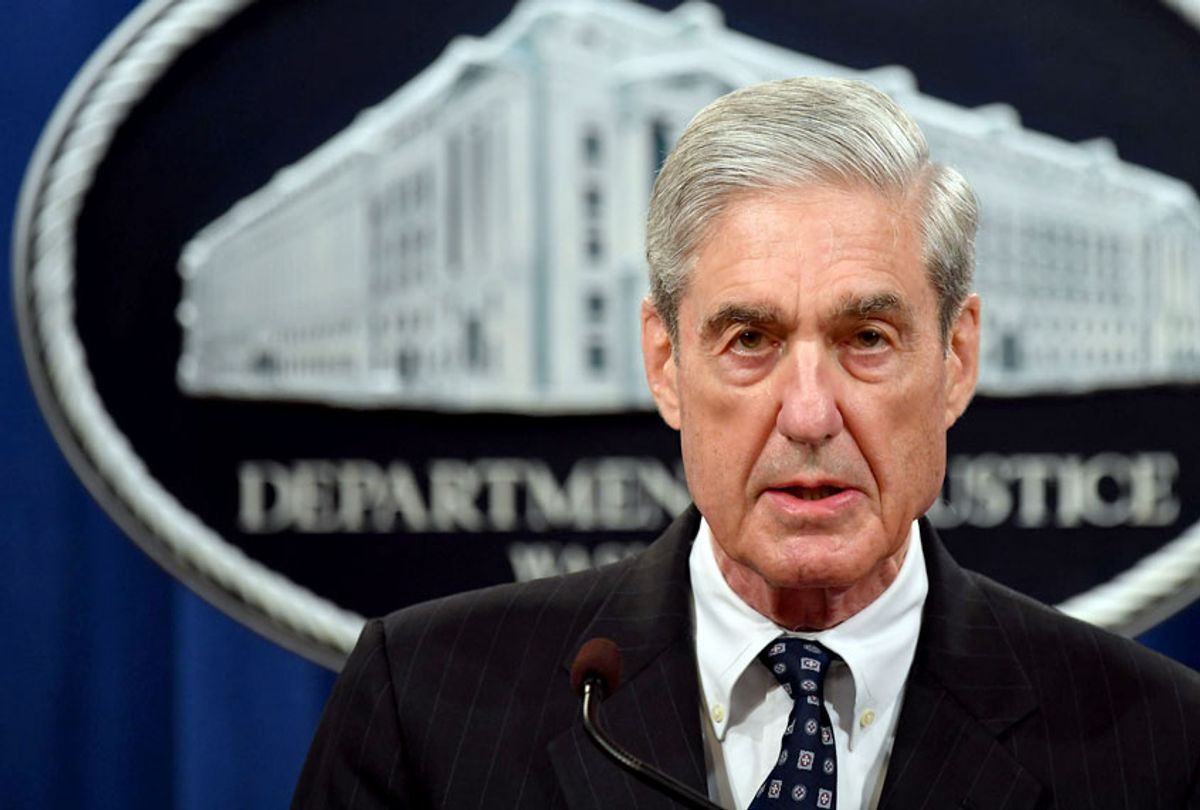Although special counsel Robert Mueller spoke publicly numerous times in the past, he carefully avoided the spotlight after being appointed to lead the Russia investigation in 2017. But Mueller finally broke his silence on Wednesday, May 29, discussing key points of his investigation during a ten-minute speech in Washington, D.C. And Washington Post reporter Sal Rizzo analyzed Mueller’s speech in an in-depth Twitter thread.
Rizzo posted at least ten tweets in his thread, and one of the things he analyzes is Mueller’s assertion that U.S. Department of Justice (DOJ) policy prevented him from indicting a sitting president. The Post reporter notes that the DOJ policy Mueller cited in his speech isn’t actually in the U.S. Constitution.
“The text of the Constitution doesn’t prohibit the indictment of a sitting president,” Rizzo tweets, “and the Supreme Court has not ruled on this question.”
Rizzo notes that the Office of Legal Counsel (OLC) has, in the past, outlined its concerns about indicting a sitting president and “concluded that the president’s powers and responsibilities were so vast and important that an indictment would pose too many risks to the proper functioning of government: wars, economic calamity, etc.” And Rizzo links to DOJ memos on the subject from September 24, 1973 and October 16, 2000.
Rizzo also quotes the U.S. Supreme Court’s 1974 ruling in United States v. Nixon, noting that according to the High Court, “neither the doctrine of separation of powers nor the need for confidentiality of high-level communications, without more, can sustain an absolute, unqualified presidential privilege of immunity from judicial process under all circumstances.”
Rizzo also points to the Court’s 1982 ruling in Nixon v. Fitzgerald, tweeting that the Court “ruled that the president had immunity from civil lawsuits arising from his actions *in office.*” And in Clinton v. Jones in 1997, Rizzo adds, the Court “said the president had no immunity from civil suits arising from conduct while he was *not in office*.”




Shares